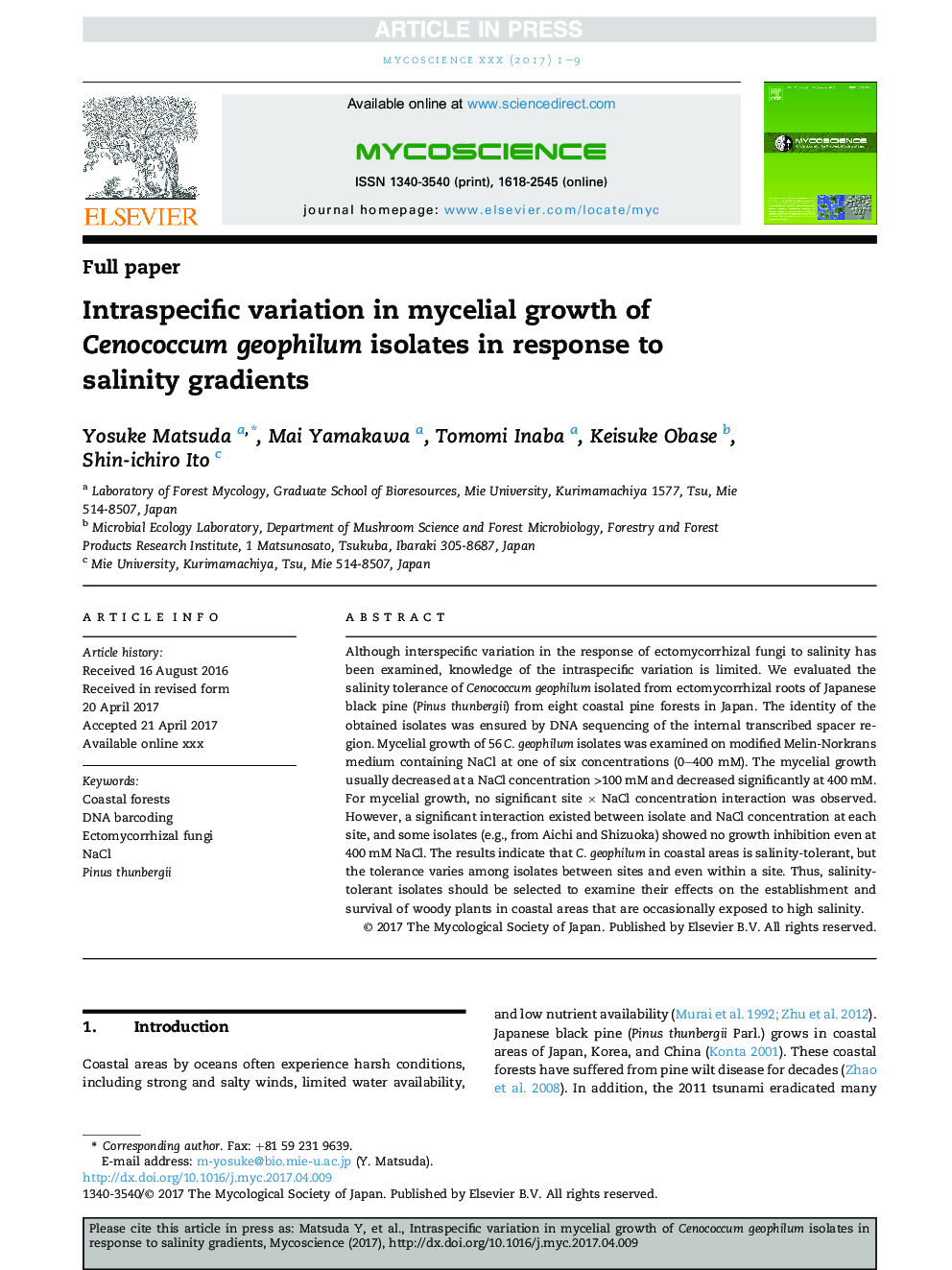| Article ID | Journal | Published Year | Pages | File Type |
|---|---|---|---|---|
| 8392017 | Mycoscience | 2017 | 9 Pages |
Abstract
Although interspecific variation in the response of ectomycorrhizal fungi to salinity has been examined, knowledge of the intraspecific variation is limited. We evaluated the salinity tolerance of Cenococcum geophilum isolated from ectomycorrhizal roots of Japanese black pine (Pinus thunbergii) from eight coastal pine forests in Japan. The identity of the obtained isolates was ensured by DNA sequencing of the internal transcribed spacer region. Mycelial growth of 56 C. geophilum isolates was examined on modified Melin-Norkrans medium containing NaCl at one of six concentrations (0-400 mM). The mycelial growth usually decreased at a NaCl concentration >100 mM and decreased significantly at 400 mM. For mycelial growth, no significant site Ã NaCl concentration interaction was observed. However, a significant interaction existed between isolate and NaCl concentration at each site, and some isolates (e.g., from Aichi and Shizuoka) showed no growth inhibition even at 400 mM NaCl. The results indicate that C. geophilum in coastal areas is salinity-tolerant, but the tolerance varies among isolates between sites and even within a site. Thus, salinity-tolerant isolates should be selected to examine their effects on the establishment and survival of woody plants in coastal areas that are occasionally exposed to high salinity.
Related Topics
Life Sciences
Agricultural and Biological Sciences
Agricultural and Biological Sciences (General)
Authors
Yosuke Matsuda, Mai Yamakawa, Tomomi Inaba, Keisuke Obase, Shin-ichiro Ito,
